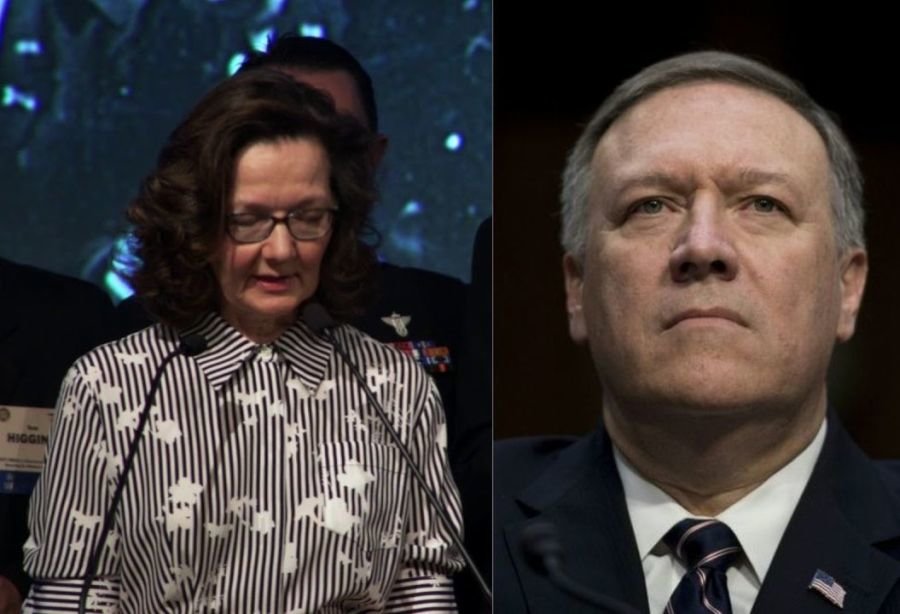Radicalism at the White House

TEHRAN - The dismissal of U.S. Secretary of State "Rex Tillerson" and appointing "Mike Pompeo", CIA Director for his post means that serious changes are happening in the White House.
In the domestic circles of the United States, and even with the traditional Republicans and Democrats, Tillerson was considered one of the few symbols of the political rationality in Trump administration. On the contrary, Pompeo has always been a symbol of extremism in the political and security structures of the United States.
Consequently, the domestic circles of America believe that Trump, by removing Tillerson from power, has practically expanded radicalism and extremism in his government. The U.S. President has ousted his Secretary of State while Washington-Pyongyang talks are still under way on the existing divisions. Donald Trump, on the other hand, is scheduled to make a final decision on the nuclear deal with Iran in about two months. In such a situation, the U.S. Secretary of State is about to make significant changes at the White House.
Although the American political structure (especially in the field of foreign policy) is not about a particular person, Pompeo's presence as a symbol of extremism at the top of U.S. foreign policy equations represents a more serious confrontation between Trump's government and the international community. Here are some points that should be taken into consideration:
Firstly, Pompeo's presence on top of the U.S. foreign-policy equations has raised a lot of concerns among Washington's allies, especially the European politicians. One of the issues which both Pompeo and Trump agree on, is to confront the existence and nature of the European Union. Pompeo, as the CIA Director, has played an important role in supporting extremist right-wing and nationalist groups in Europe over the last year. Donald Trump, in some of his positions, has explicitly supported phenomena such as "Brexit" and called for other European countries to take it as a model. Europe's return to nationalism is a major policy that Trump and Pompeo have been pursuingsince the last year (especially in 2017). Obviously, this process will intensify during Pompeo's presence at the US Department of State.
The second point is that Pompeo's presence at the U.S. State Department will create crises among supporters of the diplomatic settlement of the North Korean nuclear and missile case. Obviously, the presence of Pompeo at the head of the nuclear negotiating team of the United States with North Korea will work as a disincentive factor in bilateral or multilateral negotiations. Hence, many countries in the Far East, such as Japan and South Korea, are worried about the dismissal of Rex Tillerson and the presence of Pompeo. This concern will be expressed in different ways in the coming days.
The third point goes back to Donald Trump's decision on the Joint Comprehensive Plan of Action (JCPOA). Mike Pompeo is considered the main opponent of the nuclear deal with Iran. Donald Trump has explicitly stated that he disagreed with Tillerson over the nuclear deal with Iran as well as other subjects, and that his views are consistent with Pompeo.
Trump explained: "When you look at the Iran deal, I think it's terrible. I guess he thought it was OK. ... So we were not really thinking the same. With Mike, Mike Pompeo, we have a very similar thought process. I think it's going to go very well."
The JCPOA has always been one ofthe main areas of disagreement between Trump and Tillesron. This disagreement has long existed. It was not without a reason that "Nikki Haley", the United States representative to the United Nations and not Tillerson, became the main player regarding the nuclear deal with Iran. Undoubtedly, the recent move by Trump to dismiss Tillerson means that he is trying to withdraw from the nuclear deal with Iran. As emphasized, Pompeo also calls for a cancellation or a change in the JCPOA to guarantee the goals of the United States.
Just like Trump, Pompeo and Nikki Haley believe there should be changes to the nuclear deal and its content so that the International Atomic Energy Agency (IAEA) can have access to military sites in Iran, and the time limits included in the JCPOA (the so-called sunset clauses) should be removed and replaced by permanent constraints. The United States also wants Iran's missile program to be included in the nuclear deal.
Obviously, the Islamic Republic of Iran will not accept any of these hideous demands, and will resist vigorously against the demands made by the United States and the European Troika. Under such circumstances, Trump may unilaterally declare the withdrawal of the United States from the nuclear deal.
The other issue that has turned to a serious controversy between the U.S. President and Tillerson in recent months was the involvement of "Jared Kushner", Trump's son-in-law, in U.S. foreign policy, especially in the West Asia region. Kushner had meetings with Benjamin Netanyahu, the prime minister of the occupying regime of Quds and other Zionist authorities, without Tillerson knowing about these meetings.
The same issue has led to the dissatisfaction of Tillerson, but Trump has provided a way for his son in law's activities with his silence.This is while Pompeo, as a dependent official, doesn't appear to be basically at odds with the lack of independence of the U.S. State Department.
In any case, we wait to see the consequences of Trump's recent action and the presence of Pompeo at the top of the U.S. foreign policy equations.
